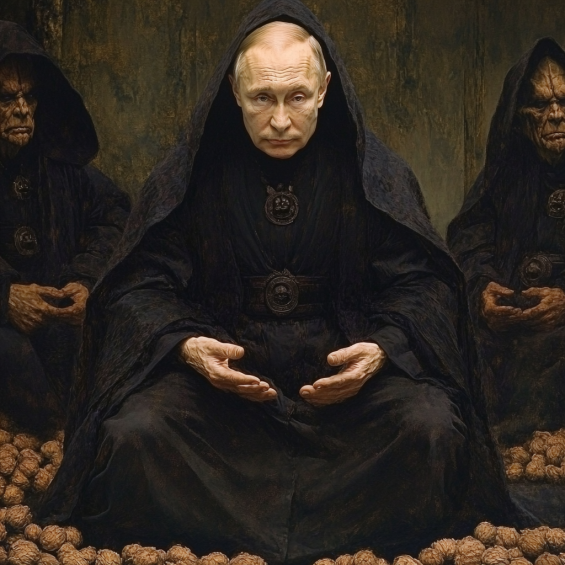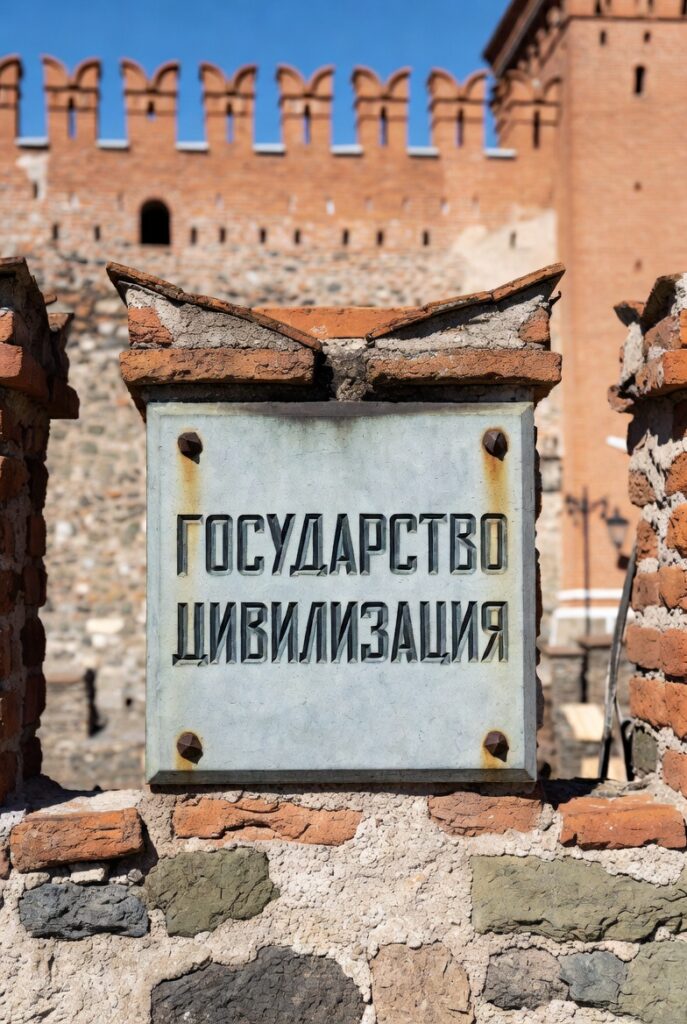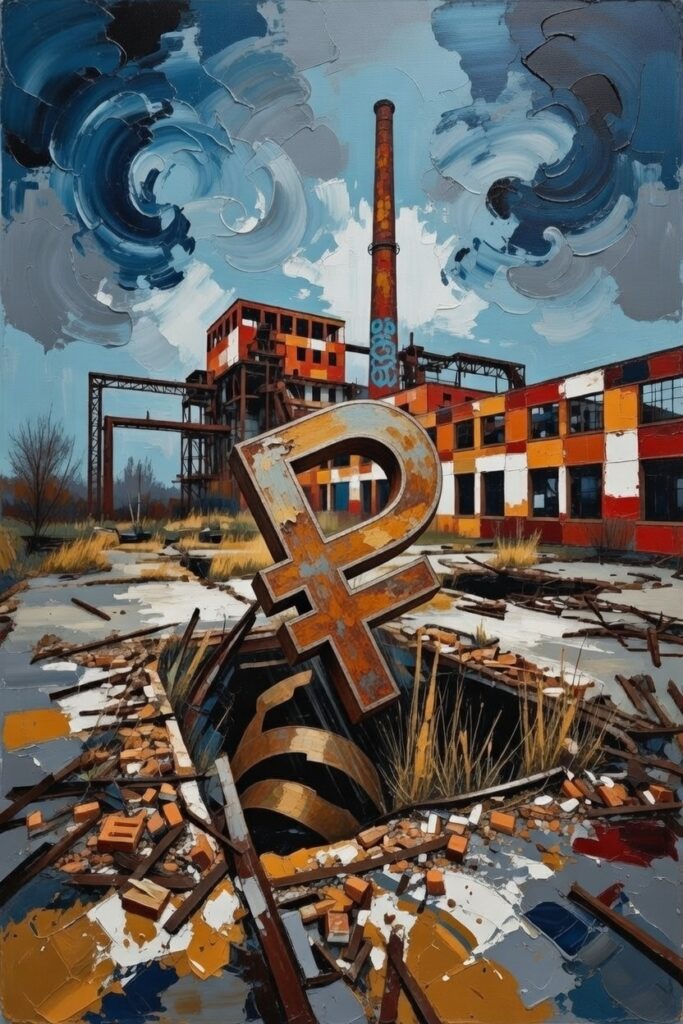For the past week, Vladimir Putin has been extolling the virtues of the Oreshnik missile, which has suddenly appeared in the Russian arsenal. The Russian president has convened meetings to present it and mentioned it during his trip to Kazakhstan. According to the official version, peddled by the Kremlin and its media, the Oreshnik, even in its non-nuclear configuration, causes the greatest possible damage, and existing air and missile defence systems are powerless against it. His words backed up deeds: at the end of last week, the Russian army attacked the Yuzhmash plant in Dnipro with an Oreshnik missile without a nuclear warhead. In essence, Putin is using the very tactic proposed by the founder of the Valdai Club, political scientist Sergey Karaganov. He is actively threatening the West not only with his nukes, but also with missiles (which is indeed what Karaganov advises). However, the Russian president does not dare to follow his adviser’s suggestions to the tee — the Russians do carry out a missile strike, but not in full force. Most likely, Putin is deterred from nuclear escalation by the very likely prospect of the rupture of economic relations with his main partners, India and China.
The country’s building bars
On the eve of the «United Russia» party congress (14 December), Vladimir Yakushev, acting secretary of the party’s General Council, wrote a policy article published in Vedomosti. Along with the traditional statements from the governing party that the «United Russia» is not a party of officials (although the mass arrival of new governors at the head of regional branches is proof of this), but a «party of the people» and a «party of the president», Yakushev tries to put his own spin on the party’s self-positioning. «We have one and only one task, which is reflected in the name of the party itself: to unite voters and elites and become an effective tool for Vladimir Putin in his mission to save Russia from disintregration. The party has turned into the building bars of sorts that bind the country’s political space together at the level of a single language, algorithms of approval, unified intra-party and factional norms,» he explains.
The «United Russia» party used to ritually dissociate itself from all the other parties that are built into the system, and stress its differences and disagreements with them, in other words, it used to at least imitate some sort of political struggle. In fact, Yakushev says that the entire political (including party) system is built on the framework of the «United Russia» party, and that the «United Russia» party is its skeleton, the supporting element that defines the rules of its existence. Other systemic parties in this scheme seem to be an additional, optional, one could say, purely ornamental elements that decorate the skeleton. In Yakushev’s version, all the other elements of the Russian political system (including the parties) exist according to the rules of the «United Russia» party, speak its language and use its party norms. The acting General Secretary presents the idea of «Putin’s party front» in a new way, and this idea differs from the «People’s front» that Vyacheslav Volodin tried to introduce during his time in the Kremlin. Volodin’s front system envisioned an umbrella brand that was supposed to cover different parties and mask the «United Russia», which had lost popularity in the early 2010s.
In Yakushev’s party front, this umbrella is no longer needed; the «United Russia» party becomes the unifying centre of the entire system. There is no longer any need to hide its brand, since the mobilization of businesses and electronic voting guarantee the official election results. The acting secretary of the «United Russia» party sketches the contours of the system as follows: there is the main party, which formulates the rules, and then there are its satellites with slightly different agendas. On the one hand, this is a statement of existing facts; on the other, until a few days ago, the Kremlin and the «United Russia» party were officially talking about multi-party politics and supposedly real democracy and political struggle. Yakushev’s system does not provide any room for party struggle. It is pointless to fight with the main structure, which sets the rules; one can only join it within a broad system (the front) as a satellite with limited voting rights. Coming from the acting secretary of the General Council of the «United Russia» party this confession is striking. Putin may well like this design of the party system, we have written earlier that he envisons a set of systemic parties as a single entity.
Yakushev’s assertion that the «United Russia» party «relies on the authority and reputation of the president» is also quite frank. It can be seen as a cautious offer to Putin to head the ruling party’s list in the Duma elections. This will really help the official results of the «United Russia» — the administrative system will do its best to ensure that Putin at the head of the list will have nice figures, and the «United Russia» party will achieve new «record results». Yakushev will be able to take credit for this achievement (albeit by known methods). We are seeing the new acting Secretary of the «United Russia» party’s General Council turn into its General Secretary, a real party leader who is trying to formulate a new ideology for the «United Russia» party and lead the new party front.
Party sufficiency
Shortly before the publication of Yakushev’s policy article, the Ministry of Justice refused to register two new party projects: «Rassvet» headed by politician Ekaterina Duntsova and the Beer Lovers Party (BLP), which its founder, political technologist Konstantin Kalachev, has decided to revive. The decision was quite predictable: there is no need for new members in the ranks of the party front. Sociological surveys show that Russians are tired of the existing party system as is: the ratings of its members are low and may plummet even further. The appearance of «newcomers» on the political stage, on the other hand, arouses interest. The rating of the politician Boris Nadezhdin, who tried to run for president in this year’s elections and collected signatures to do so, quickly rose from virtually zero to double digits. The popularity of the Beer Lovers Party, even in the absence of serious promotion and comprehensible activity, has surpassed the «Just Russia”‘s ratings. Kremlin officials do not want to take any risks and choose the most conservative scenario. At the same time, the registration of new, rather harmless structures could help the Kremlin to release the steam of discontent caused mainly by inflation. Social discontent is likely to worsen before the State Duma elections, and channeling it into super-populist projects like the BLP could help the Kremlin to avoid a political crisis. It would have been possible to register Duntsova’s and Kalachev’s parties «just in case», if not for the conservatism of Kremlin officials that has once again triumphed over pragmatism.
Rebellious Tatarstan
The authorities of Tatarstan have publicly opposed the reform of local government proposed by the Kremlin and the State Duma. It involves the abolition of the first tier of municipalities — rural and urban settlements — the level of government closest to the ordinary people in Russia. Villages and small towns would be merged into single districts with single heads and deputy councils. Some regions were also quite critical of the federal government’s proposals, but did not risk opposing them outright. In Tatarstan, not only deputies but also the head of the republic, Rustam Minnikhanov, spoke out strongly against the reform. «Our country is huge, and it is impossible to manage such a country according to a single model. The decisions of the State Duma refer to the system of state management. Who mandated them, if not the people? Now out of the blue the country is forced to fight over which system is right or wrong. This is a disgrace, a disgrace,» he said at a meeting of Tatarstan’s State Council.
For national republics, especially those as rich as Tatarstan, the two-tier system of local government is important for maintaining intra-elite balance. Prominent representatives of local groups and clans can head districts, towns and villages, i.e. take their place in the power vertical and participate in decision-making, at least at the territorial level. It is telling that Rais, Rustam Minnikhanov’s brother, is the head of the Sabinsky district of the republic, i.e. this post is regarded as quite an important position. A sharp consolidation of municipalities will cut off most of the local elite from the vertical of power. The importance of this issue for Tatarstan is demonstrated by the harsh language used by the head of the republic himself. This is not the first time that Tatarstan has opposed federal initiatives and tried to assert its special stance, for example, on constitutional changes in 2020. In the past, however, it was the «United Russia» party MPs who made critical statements, not the head of the republic himself. Just how angry and heated the statements made by the head of the republic are is also surprising. It is unlikely that the Kremlin will back down on municipal reform, but Minnikhanov’s statement shows that in difficult economic conditions the real regional elites are prepared to publicly oppose the centre.










